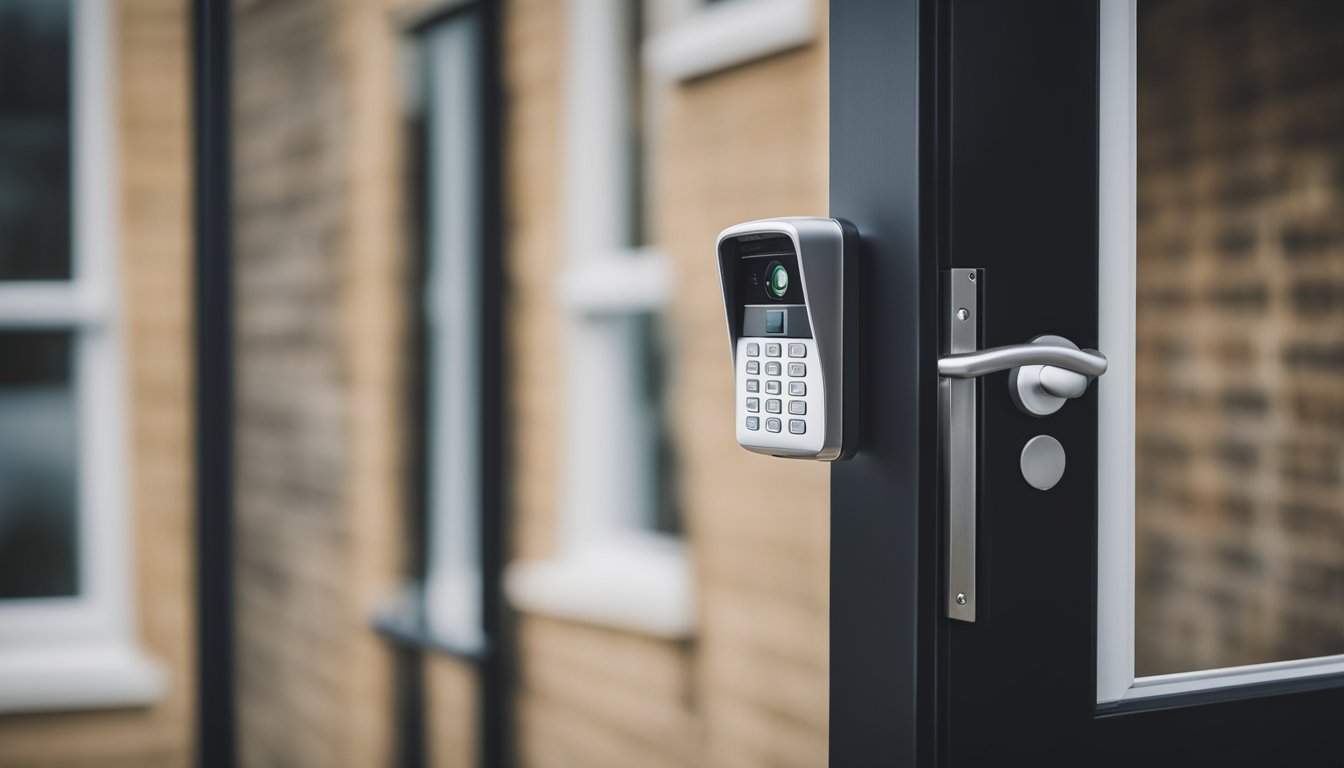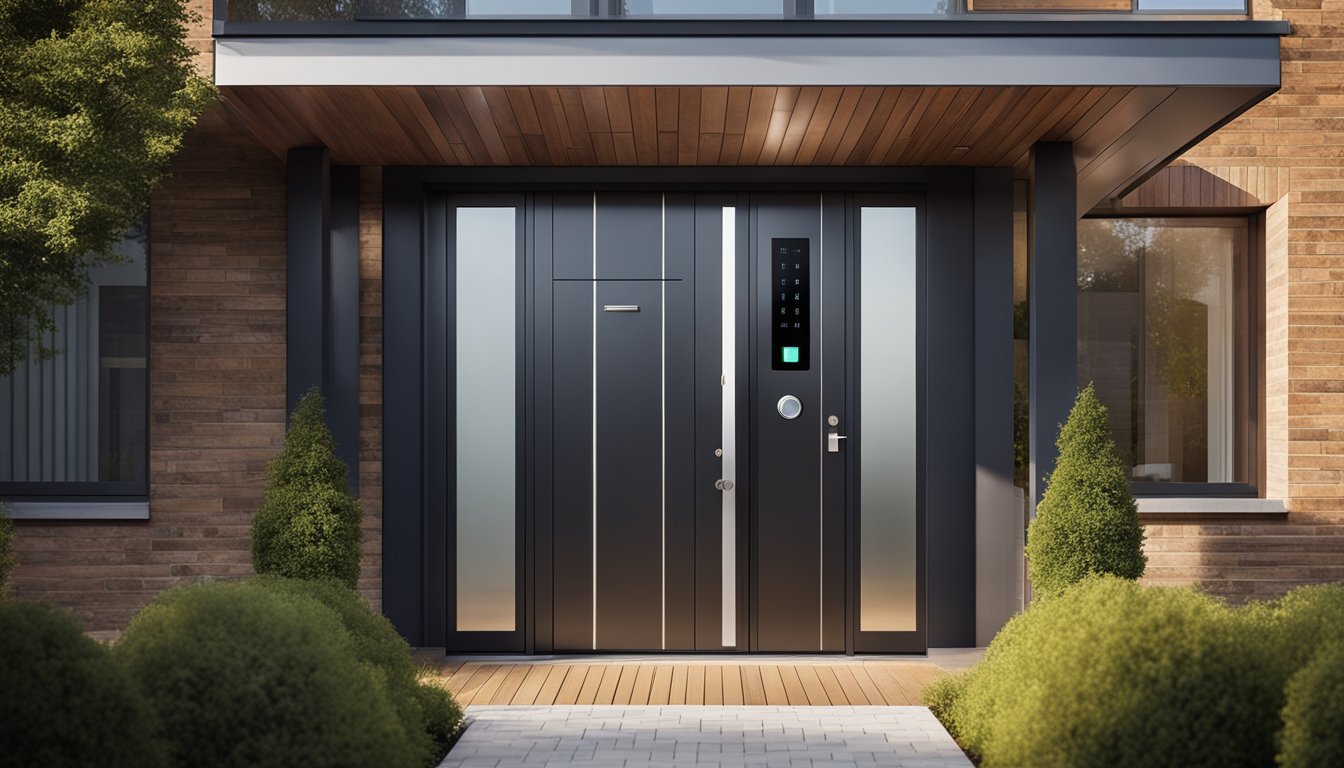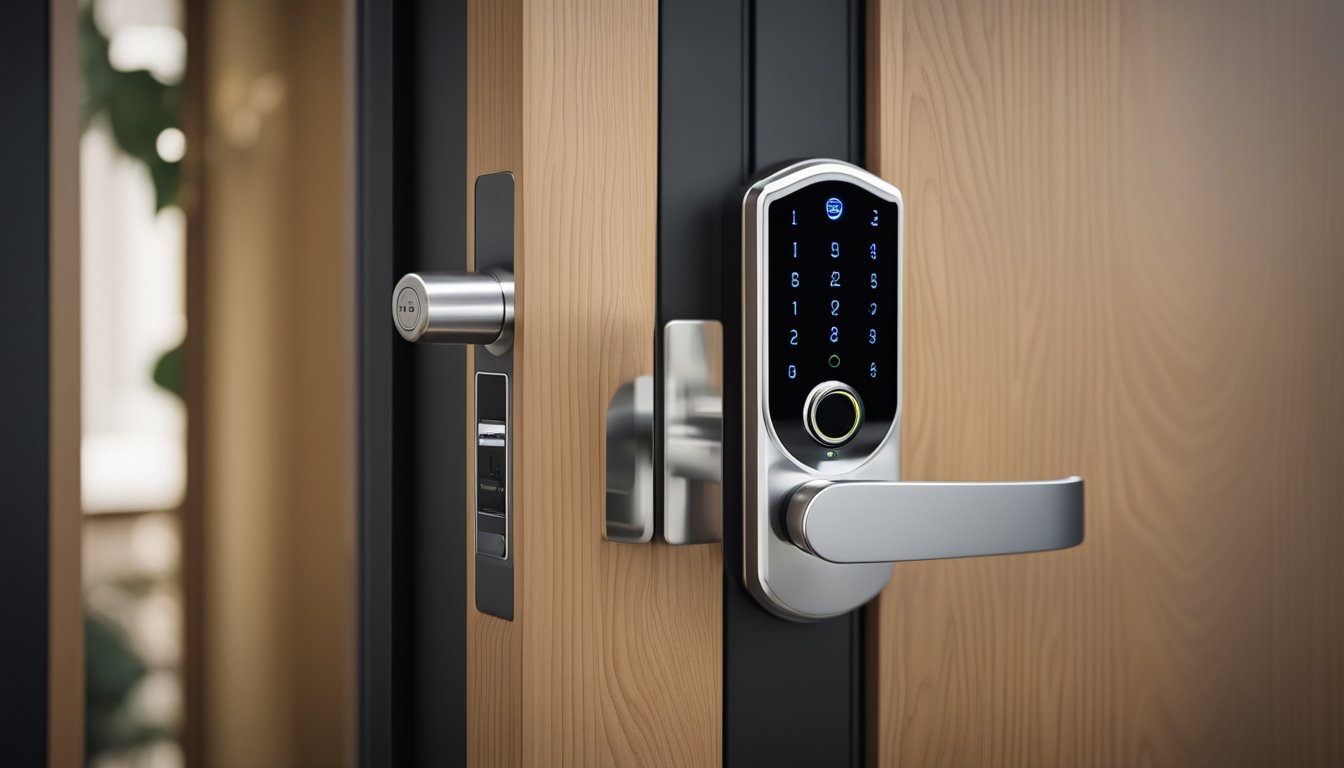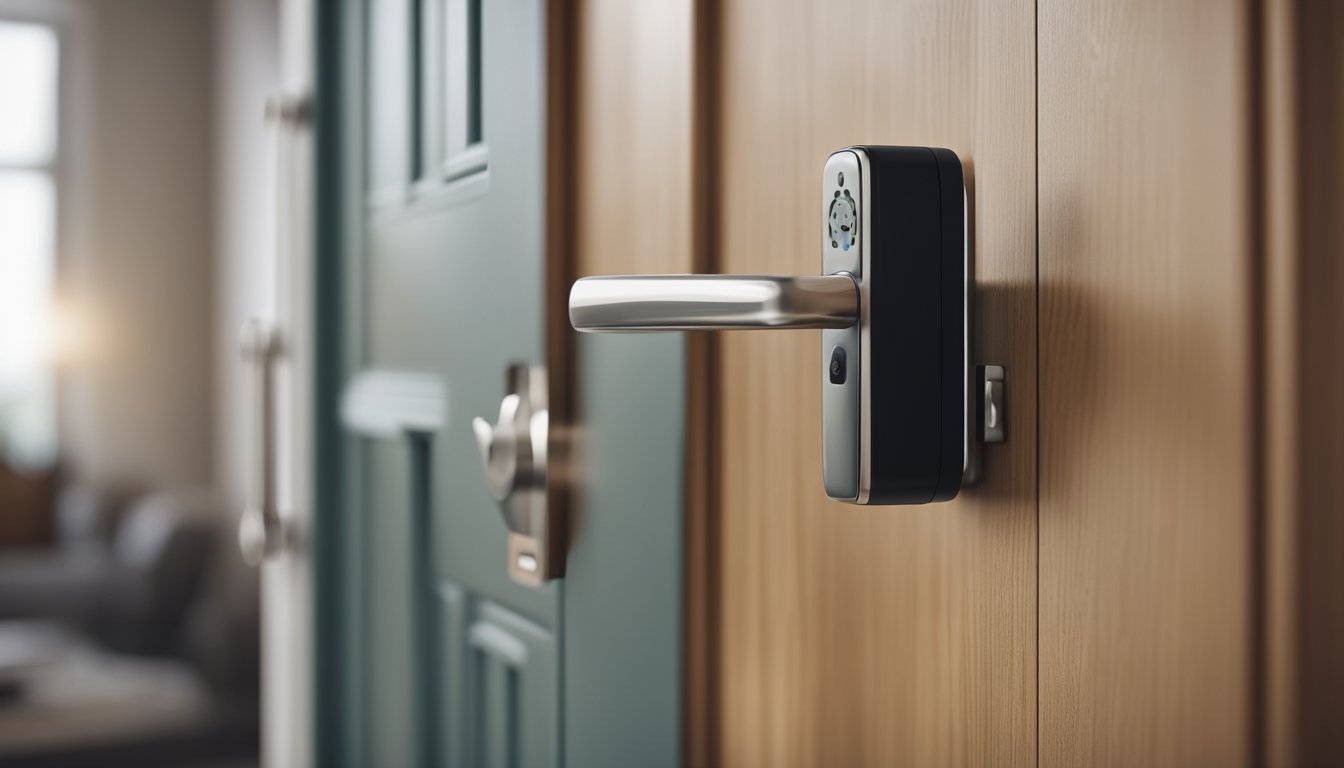Late updated: 01 Dec 2024 10:12
Written by: Elena Prescott
Exploring Biometric Door Locks for UK Homes: A Security Revolution
Exploring the realm of biometric door locks presents us with a fascinating glimpse into the future of home security. Embracing cutting-edge technology, these locks employ unique human traits such as fingerprints or facial recognition to provide robust and personal access control. By eliminating the need for traditional keys, biometric door locks enhance security and convenience for UK homes, making them an ideal choice for those looking to safeguard their property.

With the rise in smart home technology, the integration of biometric door locks into existing systems is becoming increasingly seamless. The ability to connect your lock to smart home platforms like Google Assistant, Alexa, or Apple HomeKit offers an immersive experience, ensuring control and peace of mind right at our fingertips. As we venture deeper into biometric technology, addressing common concerns and questions will equip us with the necessary knowledge to make informed decisions.
Key Takeaways
- Biometric locks provide enhanced security and convenience.
- They integrate well with smart home systems.
- We explore common user questions and concerns.
Understanding Biometric Door Lock Technology

Biometric door locks offer a modern solution to home security by utilising unique human identifiers for access control. By comparing different types and understanding their security features, we can see why they are gaining popularity over traditional locks.
The Basics of Biometric Authentication
Biometric authentication relies on unique traits of an individual, such as fingerprints, facial features, or iris patterns, for identification. These traits are used to create a digital template stored within the lock system. When someone attempts access, their biometric data is scanned and matched against this template. This ensures that only authorised users gain entry, enhancing security through personalised access control.
Comparing Biometric Locks to Traditional Locks
Traditional locks typically use mechanical keys or numerical codes for access. While functional, they can be prone to loss or theft, leading to security vulnerabilities. In contrast, biometric locks use distinct biological data that is difficult to replicate. This eliminates the risk of key duplication. Additionally, many biometric locks feature electronic overrides and manual key options, providing a backup in case biometric systems fail.
Types of Biometric Locks
Biometric locks come in several forms, each using different recognition technologies. Fingerprint locks are the most common, utilising unique fingerprint scans. Facial recognition locks use facial features for verification, while iris scanners recognize iris patterns. Voice recognition locks also exist, though less common in residential settings. Each type offers specific advantages, with fingerprint and facial recognition being popular for ease of use and reliability.
Security Features of Biometric Locks
Advanced security features bolster the effectiveness of biometric locks. Many incorporate encryption to protect stored biometric data from unauthorised access. Tamper alarms and forced entry alarms alert homeowners to attempted intrusions. Furthermore, the robust design of these locks often includes emergency power supply options to maintain functionality during power outages. This combination of features makes biometric locks a secured choice for homeowners seeking enhanced security solutions.
Integrating Biometric Door Locks into Smart Home Systems

Integrating biometric door locks with smart home systems involves several key factors, such as ensuring compatibility with existing devices, leveraging convenience through remote access, considering reliability and maintenance needs, and selecting the right lock for individual requirements.
Compatibility with Smart Home Devices
Ensuring compatibility between biometric door locks and smart home devices is crucial for seamless integration. Many smart locks on the market today, such as the Yale Keyless Connected Smart Lock and the Eufy Security Smart Lock, offer Bluetooth and Wi-Fi connectivity options. These connectivity features allow the locks to connect to smart home systems via platforms like Amazon Alexa, Google Assistant, and Apple HomeKit. Before purchasing, we should verify the compatibility of the lock with our existing smart home hub to prevent any integration issues.
Convenience and Remote Access Features
The convenience of biometric door locks stands out, especially when paired with remote access capabilities. Through dedicated smartphone apps, users can control their locks remotely, providing an added layer of security and flexibility. Features such as Remote Control, Notifications, and Voice Control make access management easy. Locks like the Yale Conexis L1 and August Smart Lock Pro support remote unlocking via smartphone apps, enabling users to grant access to visitors while away from home. This integration of smart features ensures a more controlled and convenient home security system.
Reliability and Maintenance Considerations
When selecting biometric door locks, we must consider their reliability and ongoing maintenance. While these locks offer advanced security, they require regular software updates and battery replacements to function efficiently. Some models, like the Ultraloq U-Bolt Pro and Kwikset Smart Lock, alert users through app notifications when maintenance is due. Reliability can vary, with some locks being more robust than others, hence, opting for models with a good track record is advisable. Regular software updates not only enhance performance but also improve security protocols.
Selecting the Right Biometric Lock
Selecting the right biometric lock involves understanding specific needs and budget constraints. Factors such as Smart Lock Cost, Versatility, and user compatibility play an essential role. We must weigh the benefits against the cost, considering additional features that enhance user experience. Locks with fingerprint and facial recognition, like August's latest models, may offer higher security but at a higher price. Ultimately, the choice should align with our home's needs, ensuring that the lock's features are well-suited to our lifestyle and smart home setup.
Frequently Asked Questions

Exploring biometric door locks involves understanding potential security concerns, installation challenges, and cost comparisons. We delve into these specific topics here.
What are the potential security disadvantages of using fingerprint door locks?
Biometric fingerprint locks, while advanced, may have vulnerabilities. For instance, dirt or damage to the scanner can lead to malfunctioning. Residue from previous scans might allow replication of fingerprints. Additionally, electronic components may be susceptible to hacking.
How does the cost of biometric door locks compare to standard lock systems in the UK?
Biometric door locks typically cost more upfront than traditional locks. However, they offer enhanced security features justifying the investment. It's crucial to consider both the purchase price and potential long-term savings from reduced locksmith services.
What are the common challenges associated with installing biometric door locks in UK homes?
Installation challenges often include compatibility with existing door structures and electronic wiring needs. Some homeowners find DIY installation complex, requiring professional assistance. Network connectivity might also be a concern in older properties.
How can one reset a biometric door lock if the need arises?
Resetting a biometric door lock generally involves accessing the device's internal settings. This often requires a master code or physical override key. Refer to the manufacturer's manual for specific instructions related to your model.
Which biometric door lock features are most suitable for residential properties in the UK?
For UK homes, look for features like weather resistance, user-friendly interfaces, and reliable fingerprint recognition. Integration with smart home systems can enhance convenience. Privacy modes and low battery alerts are also beneficial.
What should be considered when reading reviews about biometric door locks for home security?
When evaluating reviews, focus on user feedback regarding reliability and ease of use. Pay attention to recurring issues or praises. It's wise to consider reviews from verified buyers for a more authentic perspective. Technical support and warranty options also warrant consideration.
